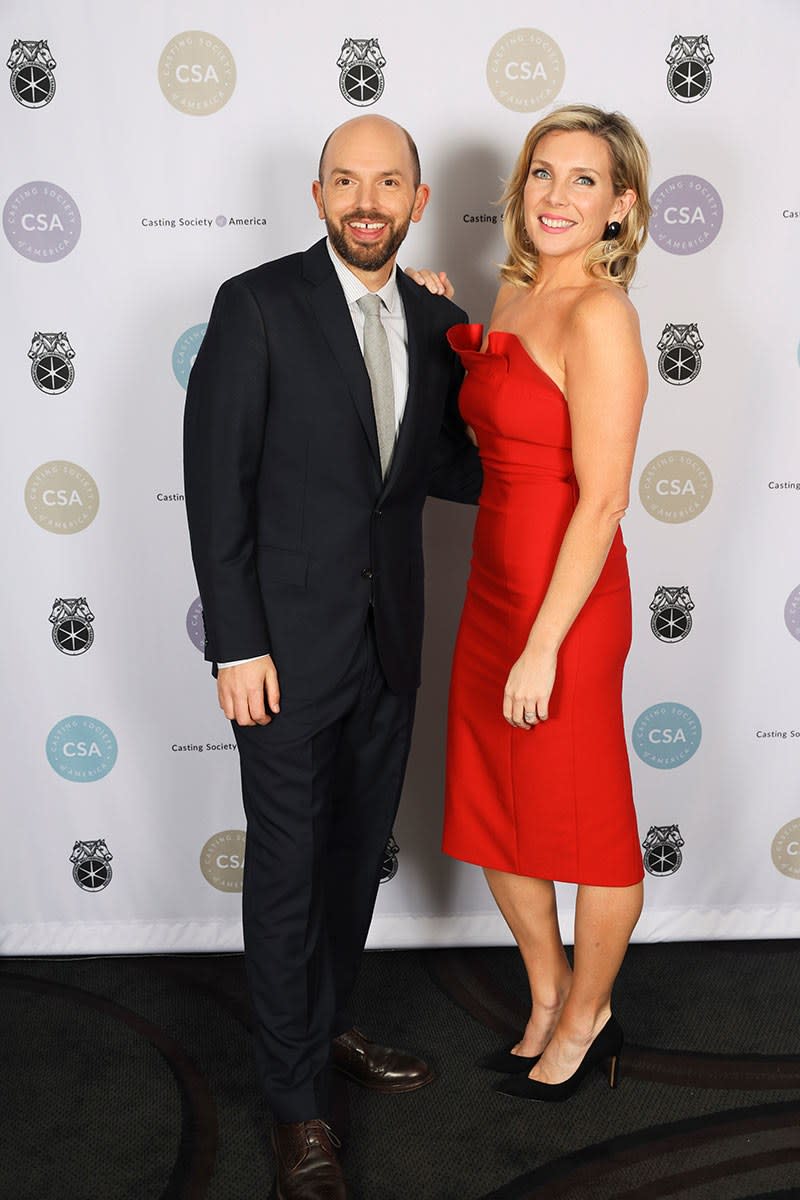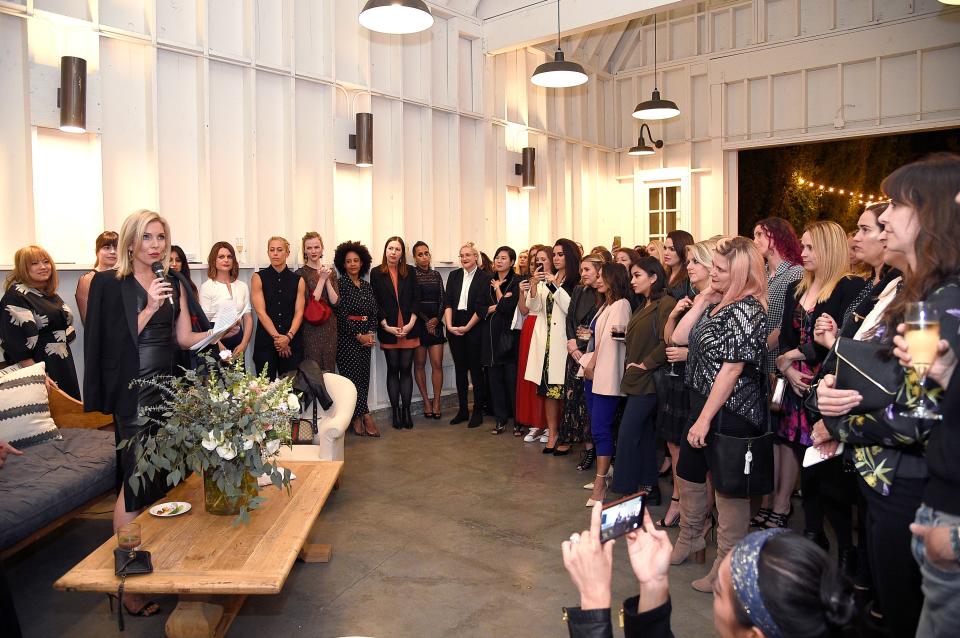June Diane Raphael: I Never Thought ‘Working Mom’ Was a Weird Phrase Until I Became One
It's funny, before becoming a mother myself, I don't think I ever questioned why we call someone a “working mom” or a “stay-at-home mom.” It wasn’t something that I flagged as problematic...or really anything. It just seemed like you're either a working mother or you're a mother, right?
I didn’t become aware of what those words meant—or why they weren't sitting well with me—until I had children myself. It occurred to me while doing press with my husband, Paul Scheer, that he was never asked who was watching our children or how he balances it all. I couldn't help but notice the disparity because it was right in front of me. On red carpets people would ask me, “Where are the kids?” And I would respond, “I don't know. Do you know?” I mean, it's so inherently offensive that I wouldn't know where my kids are—and that a father would never be asked the same question.

10080416dk
So I started to really think about the phrases “working mom” and “stay-at-home mom” and how they especially negatively impact mothers whose primary work is taking care of their children but aren’t paid outside the home. They’re doing an unbelievable amount of work in taking care of and raising our next generation, but it’s treated as not as worthy. Why? When I go to my paying job, I feel like I’m going on vacation because, for me, it’s absolutely harder to stay with my children all day and do that primary caretaking at every moment. So I have a lot of respect for women who do that.
I think this speaks to a much larger conversation about how caretaking, in general, is viewed in our country. The unpaid labor of caring for elderly people and small children and everyone in between mostly falls on women, yet that job is not valued. I find that really disturbing.
Motherhood is held up as this sacred and divinely feminine work, but in other ways that matter—politically, economically—we devalue it. That’s why I think “working mom” can be just as harmful as “stay-at-home mom.” I choose to have a paid career outside my home, but many mothers work because they have to. I think when we say “working mother,” for some people that implies you're half a mother and half a professional.
So many women I know experience this: You go to your paying job and pretend you’re not a mom.
The phrase “family man” drives me nuts. You’d never hear, “Yes, she is the CEO of her company, but she's a real family woman.” It creates this assumption about what men and women should be doing.
I think some of this language reinforces these negative stereotypes and creates boundaries around both men and women—even if that’s not the intent. Even if the phrase is actually meant to inspire. If a man who's running a company is lauded as wonderful because he spends time with his children, we should do the same for women. So many women I know experience this: You go to your paying job and pretend you're not a mom. Don't bring up the kid. Make excuses when you have to drive someone to the dentist so you're not seen as not working hard enough.
After the birth of my second child, I was struggling with the transition back into my career and feeling like a professional life was not set up in any way for mothering small children. I felt like I was apologizing on both ends—and failing. I wanted a space where I didn’t have to hide either part of myself: the professional and the mother. Then I met Jess Zaino at a political action group, and Jess told me about this idea she had for a beautiful workspace with child care on site. We created it together and called it The Jane Club. It’s a physical space, but it teases a bigger way forward: We can rewrite the rules that are established and demand that women don’t have to apologize for being mothers when they’re pursuing their careers.

The Jane Club Launch Party
I was just so tired of all the conversations around balancing it all, having it all, doing it all. I would see so many panels and discussions but no infrastructure in place to actually make these things happen. With The Jane Club, we wanted to build a village of support that extends to all caretakers. We are taking care of elderly parents, taking care of small children, taking care of our own careers—and then where do we fall in all of that? I wanted this space to take care of these women first, so that all other areas thrive. Our permanent home just opened on March 18 in Los Angeles, and there are plans to expand. Women are really craving some of the solutions we offer, and I know it's not a problem that's specific to just L.A. I’m not going to say right now that we have the solution, but I think Jess and our two co-CEOS, Zoe Regan and Dori Howard, are creating a change and making women feel differently.
I think we spend a lot of time as a culture looking at how one woman does it, right? Why aren't we focusing on how we all can create systems that help everyone? Here's where I ultimately net out: I don't think this language is meant to harm or that anyone wants to be offensive. I really don't. People use the term “working mother” as a badge of pride, and I totally understand that.
But why do we praise men for being fathers in the professional world, and punish women for being mothers? I don't have the solutions for all of this, but I think the conversation is important. Also, just call me a “mother.” I’m cool with that.
June Diane Raphael is an actor, comedian, writer, and producer. Catch her in Liongate's Long Shot and Netflix's Grace and Frankie. Her book Represent is out September 3.
Originally Appeared on Glamour

